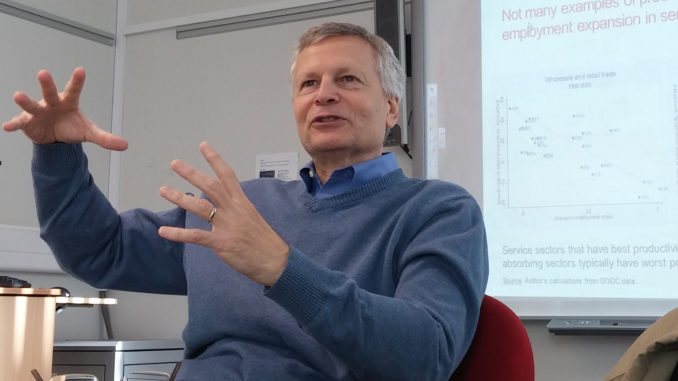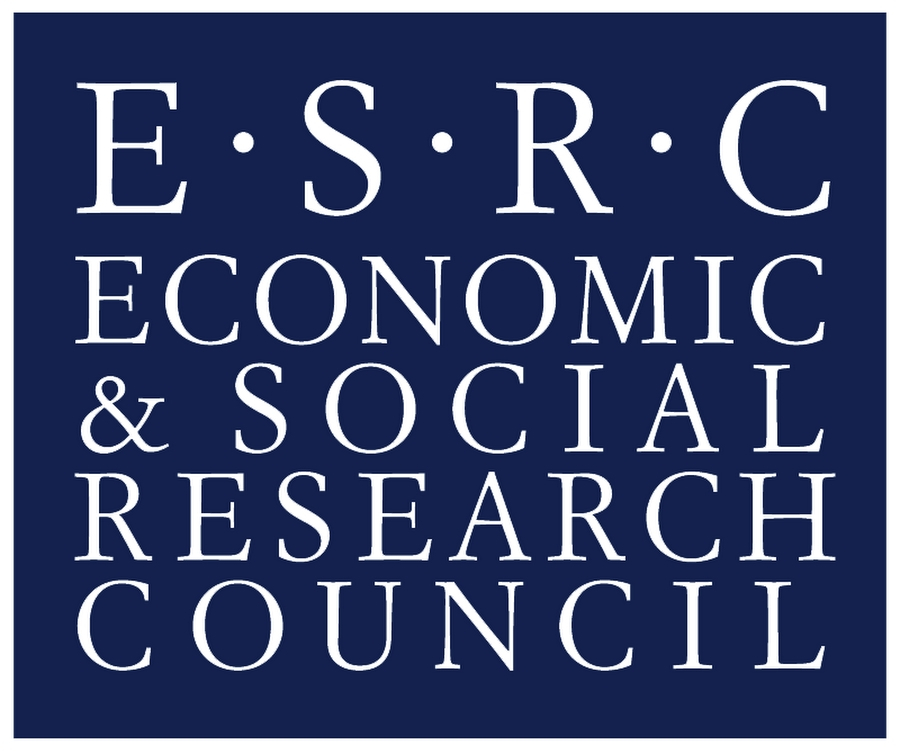
What are the implications of premature deindustrialisation? What—if anything—is so special with manufacturing? How can we make sense of recent growth episodes in the developing world? What industrial and employment policies should be pursued?
The Global Development Institute at the University of Manchester and the ESRC Global Poverty & Inequality Dynamics Research Network co-hosted a PhD masterclass with Harvard’s Dani Rodrik to address these questions.
Co-authored with Xinshen Diao and Margaret McMillan, a new paper by Rodrik provides a structural-change perspective on the recent growth boom in developing countries. Rodrik is well-known for his research interest in ‘premature deindustrialisation’ (see here for a recent book), meaning the earlier than expected shrinking of the manufacturing sector in developing countries.
The Masterclass took place fittingly in the ‘Arthur Lewis Building’ at the University of Manchester, named after Nobel prize winner and pioneering development economist.
Rodrik put forward a set of theses on the dynamics and implications of contemporary structural transformation:
First, there are new patterns of structural change unfolding in contemporary developing economies. Today, large-scale shifts of economic activity tend to be no longer from informal agriculture to organised manufacturing and then, at later stages of development, to services. Rather, the shift goes both to informal manufacturing and to services at the same time. This new phenomenon implies that the peak of manufacturing in employment and value addition is reached at lower levels of income nowadays than was historically the case.
Using data from the Groningen Growth and Development Center and the World Bank, Rodrik finds that this deindustrialization trend continues to accelerate: there is evidence of ever more missing employment in manufacturing throughout the developing world.
What jobs go ‘missing’ specifically? According to Rodrik it is mostly low skilled workers whose labour has become obsolete or uncompetitive due to both technological change and globalization. This lack of low-skilled jobs creation, according to Rodrik, is bad news for developing countries.
So, what is the problem with premature deindustrialisation?
Traditionally, manufacturing allowed for so-called ‘unconditional convergence’ with high-income countries, meaning a catch-up process in per capita incomes; manufacturing also absorbed large amounts of labour; and, manufactured goods were internationally tradeable. This is why manufacturing tended to be behind almost all sustained growth miracles so far, according to Rodrik.
Tradable services, in contrast, do not tend to absorb as much labour while non-tradable petty services are not able to drive dynamic economic development. For instance, a country cannot grow only based on the expansion of the retail sector as this expansion requires rising income levels in the rest of the economy. There is thus a secular downward trend in potential economic growth rates due by premature deindustrialisation.
Yet, there is a puzzle:
Growth episodes throughout the developing world have been astonishingly frequent since the late 1990s and a significant amount of structural change and productivity increases have occurred. Does this mean deindustrialization is not that big of a problem after all?
Rodrik argues that this boom is likely temporary. It has been facilitated by public investment and such ‘demand-led structural change’ tempers with the overall growth process by ‘crowding in’ less productive services. Rodrik’s verdict is that this does not sound like a sustainable growth model.
To be sure, nothing in his model speaks against developing economies continuing to grow. But growth will remain conditional on public investment and the full growth potential of developing economies remains thus unfulfilled. Rodrik’s conclusion is thus: In a world where industrialization does not drive the economy anymore, countries need to have more realistic growth expectations. In such a scenario, the top policy priority should not be global competitiveness—but, rather, employment generation.
He’s not alone in this conclusion as discussed on this blog last week as many international agencies look more seriously at employment and industrialization.
We’ll have more on this in the coming weeks and months. In the meantime there’s new working papers and new briefs from our network.
Andy Sumner and Lukas Schlogl
Andy Sumner is a Reader in International Development in the Department of International Development, King’s College London. He is director of the ESRC Global Poverty & Inequality Dynamics (GPID) Research Network.
Lukas Schlogl is a Research Associate with the ESRC GPID Research Network at King’s College London.

